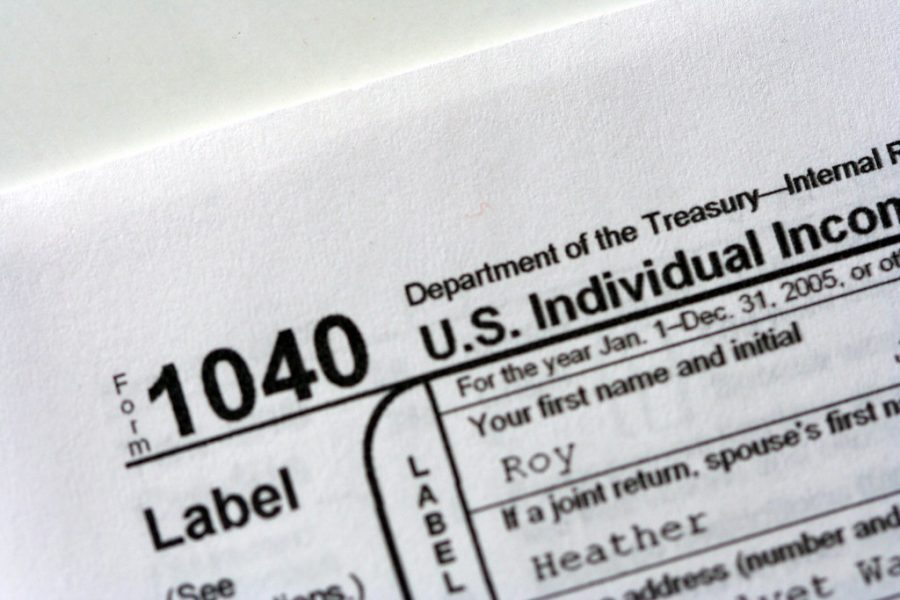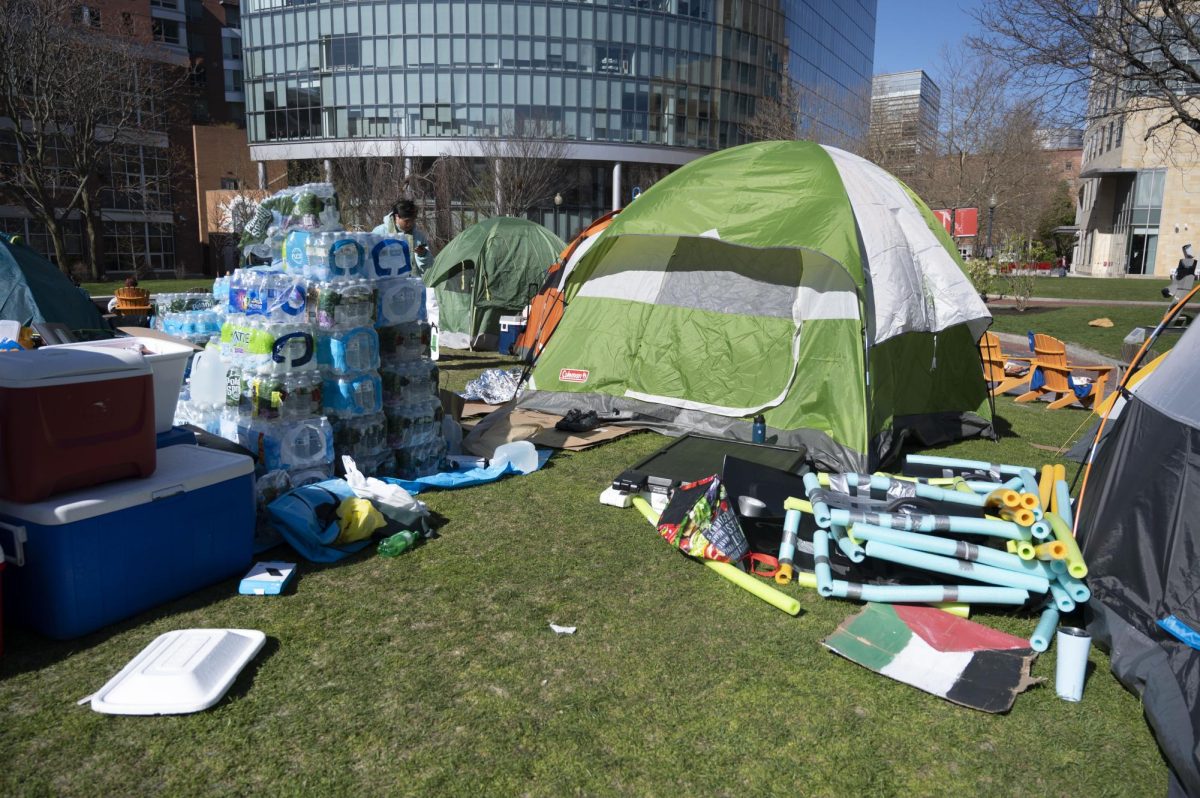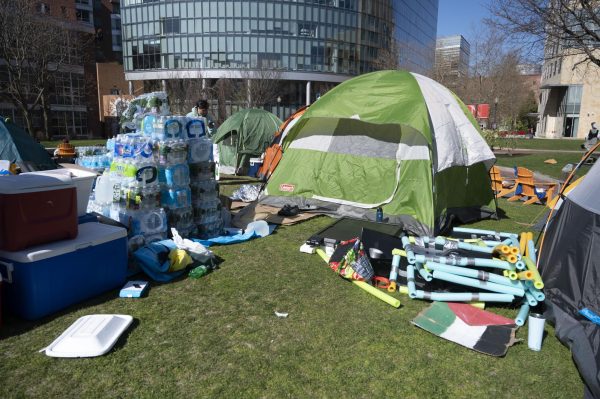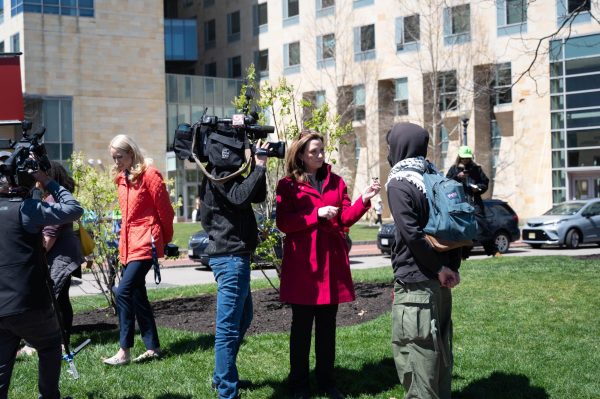Op-ed: Attorney General Healey, don’t double tax college students
"Taxes" by John-Morgan is licensed under CC BY 2.0
Massachusett’s new double-taxation regulation is unfair to its nonresident students.
February 19, 2021
On April 21, 2020, the Commonwealth of Massachusetts instituted a new economic regulation requiring that nonresident income received for services performed outside of the Commonwealth be subject to the state’s income tax. Though the regulation was temporarily extended through July, it was adopted as a final rule on Oct. 16, 2020.
Only three days after the adoption of this final rule, the State of New Hampshire filed a bill of complaint with the Supreme Court of the United States. The complaint argued that Massachusetts’s new ‘double-taxation’ policy is an unconstitutional violation of New Hampshire’s sovereignty. Consequently, New Hampshire asked the Supreme Court to exercise its original jurisdiction and suspend the policy.
In the weeks since New Hampshire’s filing, Cardozo Law School Professor Edward A. Zelinsky; the Southeastern Legal Foundation, The Buckeye Institute, the National Taxpayers Union Foundation and the states of Arkansas, Connecticut, Hawaii, Indiana, Iowa, Kentucky, Louisiana, Missouri, Nebraska, New Jersey, Ohio, Oklahoma, Texas and Utah have all filed amicus briefs in support of New Hampshire’s complaint.
Despite widespread opposition to the Commonwealth’s policy, Massachusetts Attorney General Maura Healey maintained that the Commonwealth “has not invaded New Hampshire’s sovereign or quasi-sovereign interests.” As such, she has asked the Supreme Court to deny New Hampshire’s petition for relief.
Though neither New Hampshire nor its amici mention the impact that the Commonwealth’s new policy will have on college students, the fact remains that Attorney General Healey’s preferred outcome has the potential to impose a serious burden on the Commonwealth’s college population.
As the chairperson and vice chairperson of the Boston Intercollegiate Government (BIG) — a non-partisan coalition of student governments in the Greater Boston Area, or GBA, representing over 60,000 undergraduates — we write today in opposition to the Commonwealth’s policy. While we leave the underlying legal issues of State of New Hampshire v. Commonwealth of Massachusetts aside, Attorney General Healey’s continued support of the Commonwealth’s double-tax policy is an unfortunate disservice to the thousands of students who proudly call the Commonwealth a home away from home.
According to a 2011 report by the City of Boston, over 150,000 undergraduate and graduate students are annually enrolled with institutions of higher education in the GBA. Though more recent, statewide figures are difficult to find, there is no doubt that hundreds of thousands of students annually travel to Massachusetts to receive a world-class education. Not only do these students contribute to the Commonwealth’s economic health through dining, shopping and housing/apartment leases, but they also fund the direct employment of thousands of university faculty and staff members.
BIG represents undergraduate students from eleven leading institutions of higher education in the GBA: Bentley University, Boston College, Boston University, Emmanuel College, Harvard College, Massachusetts College of Pharmacy and Health Sciences, Massachusetts Institute of Technology, New England Conservatory, Northeastern University, University of Massachusetts-Boston and Wellesley College.
Attracting top-tier talent from across the nation and the world, all of these institutions offer paid research programs and experiential learning opportunities, such as Northeastern’s co-op program, which allow students to earn a degree and gain professional experience. Whether working for state or local governments, multinational STEM corporations, professional services firms or even university-sponsored research programs, thousands of students manage rigorous academic study with true occupational responsibilities. Along with the thousands of doctoral-level students at GBA institutions who often hold fellowships and other paid research positions, college-age students make concrete, daily contributions to the Commonwealth’s economic vitality.
The COVID-19 pandemic forced many of our institutions to significantly reduce or nearly eliminate on-campus operations. While some, like Boston College, were able to safely host near-full operations in the fall, semesters across most BIG member institutions were shortened, and a large proportion of students enrolled in virtual courses, either by choice or by university requirement.
Considering the fact that the majority of students enrolled in GBA universities are out-of-state residents, the pandemic has prompted many students, like their parents, to take on remote work responsibilities. Although most college internships do not feature especially high salaries, many college-age students are indeed salaried employees.
Pursuant to Massachusetts General Law c. 62C §6, nonresident college students, like any other nonresidents in the Commonwealth, are required to pay state taxes on income exceeding $8,000. With the state’s new double-tax policy, this would mean that nonresident students with $8,000 in income who work for a Massachusetts-based employer are required not only to pay the Commonwealth’s state tax, but also the taxes of the state in which they are performing remote work.
While it is difficult to quantify the exact number of students that BIG represents who would be adversely impacted by the new double-tax policy, there is little doubt that thousands of undergraduate and graduate nonresident students would be unduly burdened by the policy that Attorney General Healey continues to support at the Supreme Court.
It is no secret that higher education is an expensive endeavor. In just one academic year, tuition, housing, food and other university-related costs can exceed $50,000. Many of the work responsibilities that college-age students take on during the academic year not only help to offset some of these exorbitant costs, but also are often the first chances students have to begin saving for and investing in their futures.
During a pandemic, our national economic future could not be any more uncertain. The policy that Attorney General Healey is advancing is of no help to the Commonwealth’s college students, our futures, and the prospects for a long-term economic recovery.
Dennis J. Wieboldt III is the chairperson of the Boston Intercollegiate Government. He can be reached at [email protected].
Hannah Nivar is the vice chairperson of Boston Intercollegiate Government. She is a second-year combined political science and international affairs major. She can be reached at [email protected].


















